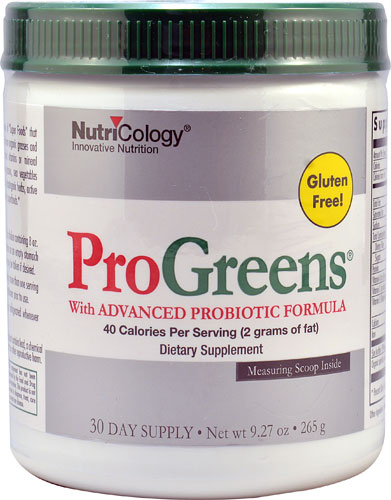[vc_row][vc_column][vc_column_text]Nowhere is the age-old adage “you are what you eat” more true than in your gut. The food you eat feeds the microbes in your gut and influences which types take up residence.
Why does that matter? Science shows gut microbiome composition can affect your health—and some eating patterns are better than others when it comes to tipping the microbial scales in your favor.

Plant-based diets and the gut microbiome
Eating a diet centered around whole and minimally processed vegetables, fruits, beans, whole grains, nuts and seeds is associated with having a more diverse collection of microbes in your gut. Called alpha diversity, this richness is generally associated with better health outcomes.
When compared to people who eat meat, those who eat mostly or completely plant-based diets tend to have higher levels of anti-inflammatory, anti-pathogenic
Bifidobacterium and
Lactobacillus species and
lower levels of pathogenic bacteria like Enterobacteriaceae in their guts. They also play host to
more bacteria that produce short-chain fatty acids (SCFAs), particularly butyrate, which are known to have positive health effects.
Plant foods promote this robust microbial landscape in several ways:
- Fiber in plants provides prebiotic food for gut microbes, which they break down and turn into metabolites like SCFAs
- Nutrients in plants that evade absorption higher up in the digestive tract nourish gut microbes and promote diversity
- Plant polyphenols can have positive effects on beneficial bacteria abundance
Only plants contain fiber and polyphenols, so these beneficial effects are unique to plant-based or plant-strong diets.
Meat-eating microbes
Eating animal proteins is typically associated with poor gut health. Undigested proteins from meat, diary, eggs and seafood may travel to the colon, where microbes ferment them into compounds
that can have negative health effects. One of the most concerning metabolites, trimethylamine N-oxide (TMAO), may increase the risk of developing cardiovascular disease.
People whose diets are high in animal protein also tend to have more pro-inflammatory microbes in their guts,
including Bacteroides, Alistipes, Ruminococcus, Clostridia, and Bilophila. This may help explain why eating more meat is associated with higher levels of inflammatory markers throughout the body.
However, it’s interesting to note the lack of studies looking at meat’s impact on the microbiome in people eating no more than the recommended
four ounces of meat per day in the context of an otherwise plant-rich diet and healthy lifestyle. Most studies focus on standard dietary patterns, which tend to exceed recommended meat intake and include high amounts of ultra-processed carbohydrates.
Both of these factors can have a significant impact on the microbiome.
More research may be needed to determine if meat alone is responsible for negatively impacting the microbiome or if other diet and lifestyle factors come into play.
Change your diet, change your gut
If you currently eat a meat-heavy diet or a diet low in plant foods, you can start changing your gut microbiome
in as little as 24 hours simply by shifting your dietary pattern. But you have to think long term; beneficial microbes only stick around if you keep feeding them fiber and nutrients!
Eating more plants is generally associated with a healthier balance between bacterial types. Feeding your gut bacteria fiber from plants also supports SCFA production, which gives more energy to colon cells, strengthens the gut lining and
can promote better immune function. Butyrate in particular regulates intestinal health and immunity, and eating fewer animal-based foods may increase the prevalence of
butyrate-producing bacteria.
The overall pattern of your diet seems to be what matters most. Higher vegetable intake can
temper the negative health effects often associated with eating meat, and focusing on plants may even
reduce how much TMAO is produced if you do choose to eat meat on occasion.
Gut health diet tips
To promote a healthier microbial balance in your gut:
- Increase water intake along with fiber intake to prevent constipation
- Replace the meat in your favorite dishes with plant proteins like tempeh, tofu, lentils or beans
- Swap out meat- and egg-heavy breakfasts in favor of oatmeal, tofu scramble or avocado toast
- Have a big salad with beans and nuts or seeds for one meal every day
- Add more vegetables to dishes you already make, such as soups and stews
- Eat a variety of plant foods to provide your gut microbes with a diverse “diet” of fiber and nutrients
- Address other lifestyle factors that can affect the gut, such as quitting smoking, engaging in regular exercise and getting enough sleep
Sticking with these habits should start improving your gut health over time. However, if you experience any unpleasant changes in bowel habits, unexplained gut pain or other unusual symptoms, talk with your doctor. Other factors,
such as medications and environment, can affect your gut microbiome, so monitor how you feel as you make changes.
Most people find that shifting to a more or completely plant-based diet leads to better gut health. Give it a try to boost your own microbiome![/vc_column_text][vc_text_separator title="Featured Products" border_width="2"][vc_row_inner equal_height="yes" content_placement="middle" gap="35"][vc_column_inner width="1/3"][vc_single_image image="155612" img_size="full" alignment="center" onclick="custom_link" img_link_target="_blank" css=".vc_custom_1635277835555{padding-right: 7% !important;padding-left: 7% !important;}" link="https://www.vitacost.com/vitacost-probiotic-15-35-15-strains-35-billion-cfu-per-serving-60-vegetarian-capsules"][/vc_column_inner][vc_column_inner width="1/3"][vc_single_image image="155678" img_size="full" alignment="center" onclick="custom_link" img_link_target="_blank" css=".vc_custom_1635277893288{padding-right: 7% !important;padding-left: 7% !important;}" link="https://www.vitacost.com/align-probiotic-whole-food-blend"][/vc_column_inner][vc_column_inner width="1/3"][vc_single_image image="155679" img_size="full" alignment="center" onclick="custom_link" img_link_target="_blank" css=".vc_custom_1635277939161{padding-right: 7% !important;padding-left: 7% !important;}" link="https://www.vitacost.com/plantfusion-vegan-complete-probiotic"][/vc_column_inner][/vc_row_inner][/vc_column][/vc_row]




